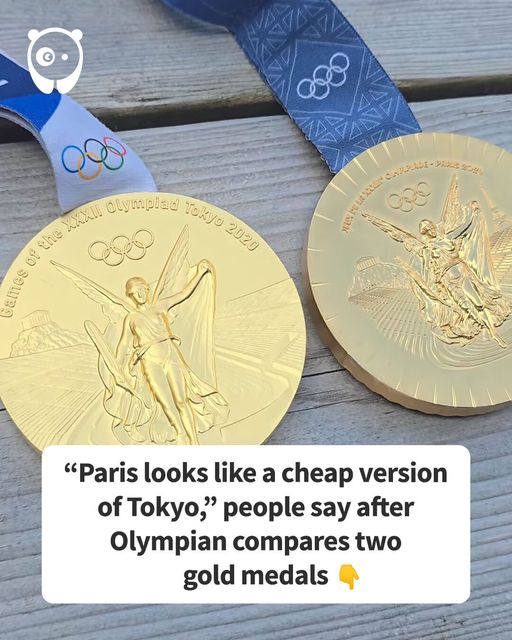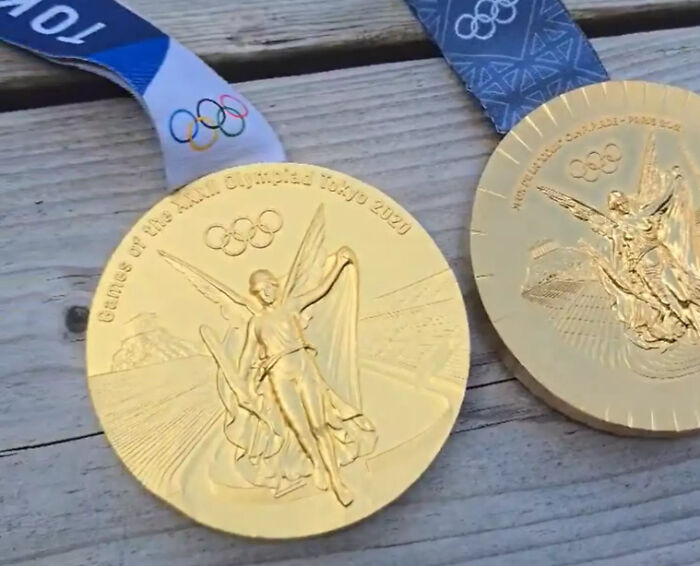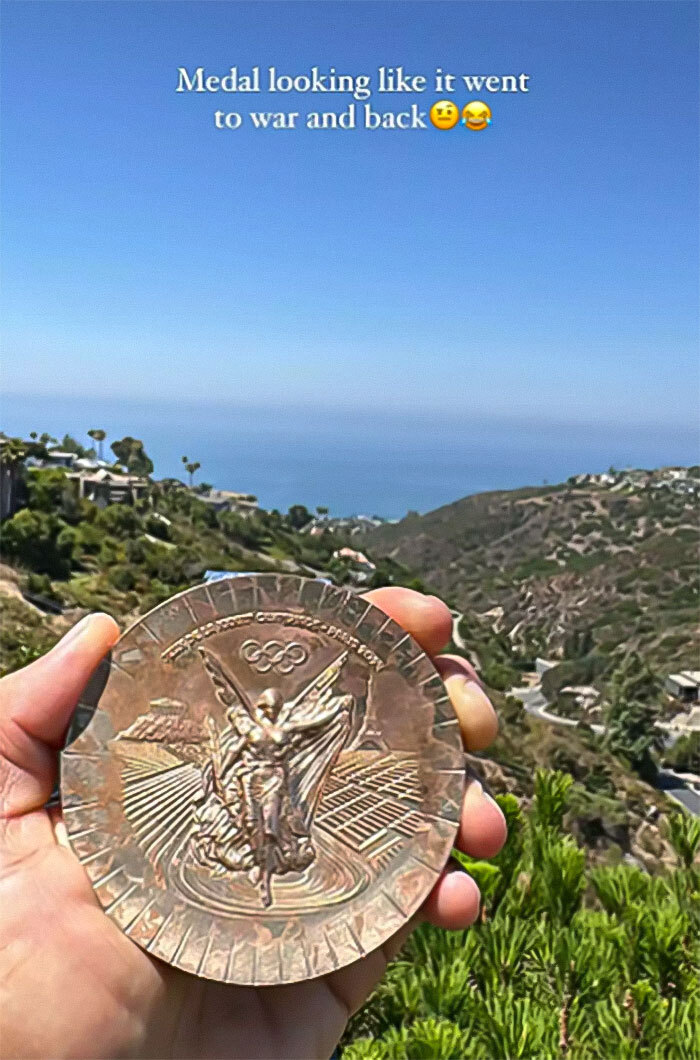Not even a week has passed since the 2024 Olympics concluded, but some people are saying they have already lost their luster.
On Sunday (August 11), Danish badminton player Viktor Axelsen posted a video showing the two gold medals he won at the 2021 Tokyo Summer Olympics and the most recent games side by side.
The athlete’s post sparked comparisons between the two medals, with many netizens arguing that the one Axelsen won in the Japanese capital looked shinier than the one from Paris.
- Danish badminton player Viktor Axelsen compared his gold medals from the 2021 Tokyo Olympics and 2024 Paris Olympics, sparking criticism online.
- Many netizens believe the Tokyo Olympic medals look shinier and higher quality.
- The post follows skateboarder Nyjah Huston’s complaint about his Paris bronze medal starting to chip after just a week.
“Tokyo looks lovely from behind… Paris looks like a chocolate wrapper,” one user wrote.
“Tokyo gold is more attractive to me,” commented another, while a third individual said that the “quality degraded so much.”
“Paris medal looks like a cheap version of Tokyo,” a separate user agreed.
Danish badminton player Viktor Axelsen posted a video showing the two gold medals he won at the 2021 Tokyo Olympics and the 2024 Paris Olympics

Image credits: Viktor Axelsen
The first time gold, silver, and bronze medals were awarded for first, second, and third place was in 1904, when the Games were held in St. Louis, United States, according to the IOC.
Despite its name, the gold medal isn’t entirely made from gold.
In the past, Olympic medals were actually made of pure gold until 1912, but after World War One, countries swapped to making silver medals with a layer of gold on top, as per the BBC.
Now, Olympic gold medals are required to be made from at least 92.5% silver and must contain a minimum of six grams of gold, often as a coating, the broadcaster added.
Meanwhile, the silver medal is made of pure silver, and the bronze consists of about 95% copper and 5% zinc.
People began drawing comparisons between the two medals, with many netizens arguing that the Tokyo medal appeared to be of higher quality
Image credits: Viktor Axelsen
Watch Axelsen’s video below:
The Tokyo Olympic medals contained metal extracted from recycled consumer electronics.
This year, they featured scrap metal from the Eiffel Tower taken during several refurbishments and repairs done since the emblematic monument was finished in 1889, “allowing these genuine pieces of Parisian and French history to find glory again,” the IOC shared.
Designed by the luxury jewelry firm Chaumet, the reverse of the Olympic medals features a hexagon, the geometrical shape of France, and the country’s nickname.
The other side of the medals depicts the story of the rebirth of the Games in Greece in 1896, featuring a representation of the Greek goddess of victory, Athena Nike, a tradition that began in 2004.
Previously, US skateboarder Nyjah Huston, who earned bronze in Paris in the men’s street final, complained about his medal chipping off a week after he won it
Image credits: Nyjah Huston
Axelsen’s video comes after Team USA skateboarder Nyjah Huston took to social media to complain about the deterioration of his bronze medal just a week after winning it in Paris.
Huston came third in the men’s street final behind teammate Jagger Eaton (silver) and Japan’s Yuto Horigome (gold).
“These Olympic medals look great when they’re brand-new, but after letting it sit on my skin with some sweat for a little bit and letting my friends wear it over the weekend, they’re apparently not as high quality as you’d think,” the 29-year-old athlete shared.
He proceeded to show his medal, which he said looked “rough” and was “starting to chip off a little” at the front.
“Olympic medals, we gotta step up the quality a little bit,” Huston said
“Olympic medals, we gotta step up the quality a little bit,” Huston added. He further wrote that the medal looked like it “went to war and back.”
Following the skateboarder’s comments, organizers from the Paris Games stated that they were willing to replace any “damaged” medals.
“Paris 2024 is aware of a social media report from an athlete whose medal is showing damage a few days after it was awarded,” a spokesperson told MailSport.
“Paris 2024 is working closely with the Monnaie de Paris, the institution tasked with the production and quality control of the medals, and together with the National Olympic Committee of the athlete concerned, in order to appraise the medal to understand the circumstances and cause of the damage.”


